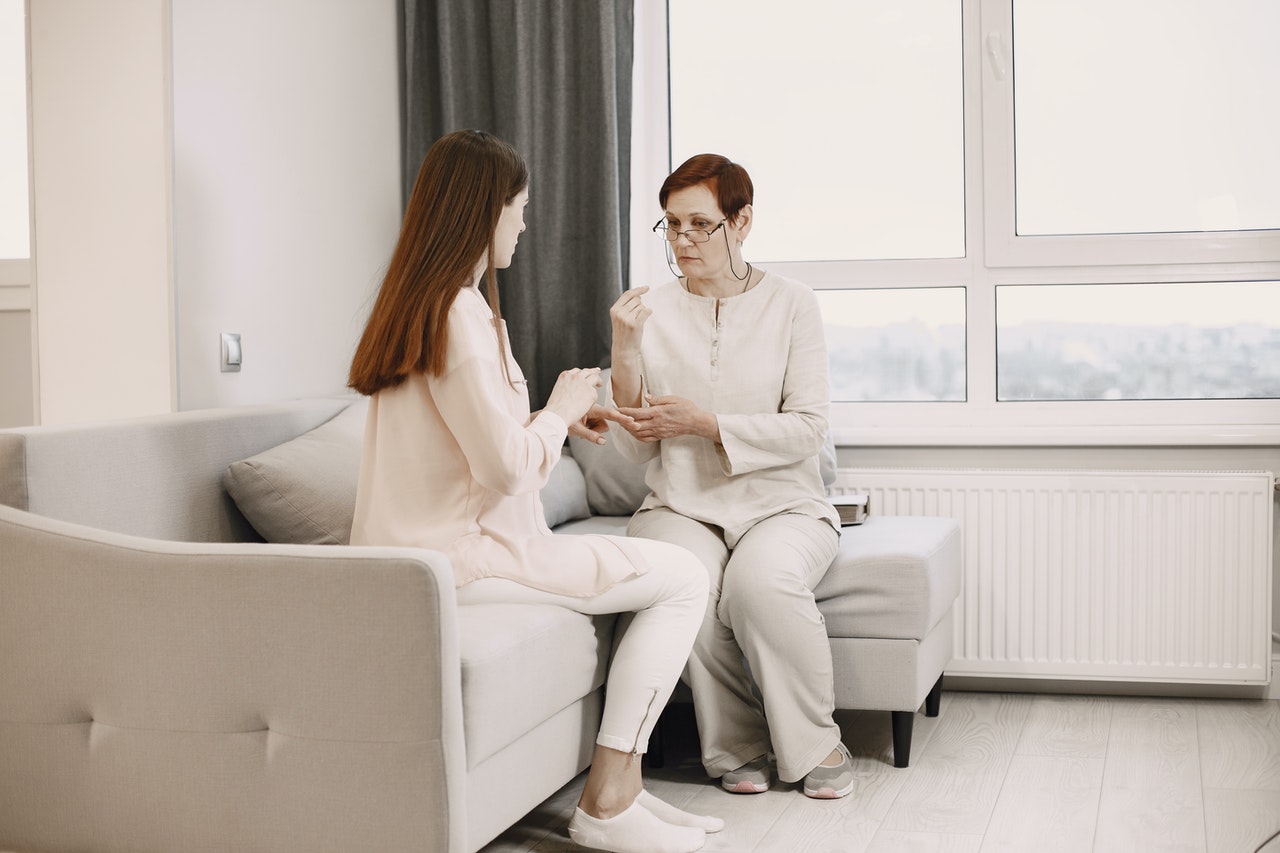The week between 2nd-8th May is the Deaf awareness week run by the UK Council on Deafness. This year there is a particular emphasis on inclusion, and to look at areas where Deaf people have been excluded based on their disability and to begin breaking down those barriers. With this in mind, a landmark 2005 study found that Deaf people are almost twice as likely to experience depression, poor mental health and low self esteem because of the way in which they are excluded or treated differently. With the pandemic rolling on, many Deaf people have experienced worsened health as support groups, regular contact and other wellbeing activities were excluded due to restrictions – even more so for those Deaf people with other comorbidities which could cause serious disease with coronavirus.
In a recent study by Sign Health, one of the leading Deaf charities in the UK found almost 75% of Deaf respondents had found it difficult to access healthcare during restrictions and nearly 90% of Deaf individuals were worried about how they would communicate with staff on wards if they were hospitalised with COVID-19, something very much as a non-concern by able-hearing people. Out of all of the challenges Deaf individuals experienced during the pandemic (and now with mostly virtual and telehealth doctors’ appointments) is above and beyond the social isolation brought by restrictions and lockdowns. Echoing this, one respondent stated, “I work in a hospital and have been unable to work due to the unavailability of clear masks....it felt the Government hadn't even thought about us Deaf people and lacked understanding in our need to lip-read and see faces”. This communicates how messaging handed down from governments was at times strictly ableist, with no thought towards those who experience communicative difficulty.

Sign Health provided coronavirus briefing support by using interpreters to convey vital government information on cases, hospitalisations, and new restrictions. At times, the Downing Street briefings were without even basic provisions like closed captioning, restricting many from accessing information which would have allowed considered decision making based on personal risk. Sign Health set up, “A service with Interpreter Now, providing a video relay interpreting service, free and universally available, 24 hours a day, for communication with Deaf people in health settings, funded by their reserves”. Such efforts by NGOs are wonderful gestures, but one would expect governments to be available to consider these adjustments, and it was only towards the end of the briefings that interpreters were sometimes available. Still, this does not acknowledge those who are Deaf and hard of sight, for which no other adjustments were available.
In terms of emotional resourcing, recent research found that Deaf individuals living with parents had a protective effect on the ability to withstand anxiety and depressive symptoms. Those living alone often faired worse having a less easy to access support network and this was particularly pernicious at the heigh of restrictions. Living alone during this time often provoked fear of going outside, fear of life returning to normal and what complications make occur from a potential hospitalisation. An interesting outcome from the use of mask wearing was people who didn’t identify as being hard of hearing suddenly began to have issues with comprehension due to the diminished capacity to lip read, something we naturally do in conversation unconsciously.
Indeed, those particularly of old age not having auditory stimulation through conversation have experienced quicker deteriorating hearing ability, with audiologists noticing a pronounced surge in patients expressing concerns about their hearing. Speaking in The Verge, Catherine Palmer, the former president of the US audiology academy noted, “People who already had hearing aids were having more difficulty understanding speech. People with (sic) even mild hearing loss, who weren’t previously using hearing aids, suddenly found that they couldn’t understand speech without them”. One of the further hurdles facing Deaf and hard of hearing individuals is the lack of ergonomic masks which often do not integrate well with hearing aid clips and in-ear devices.
